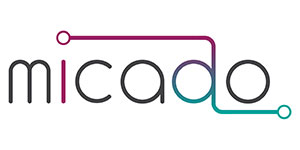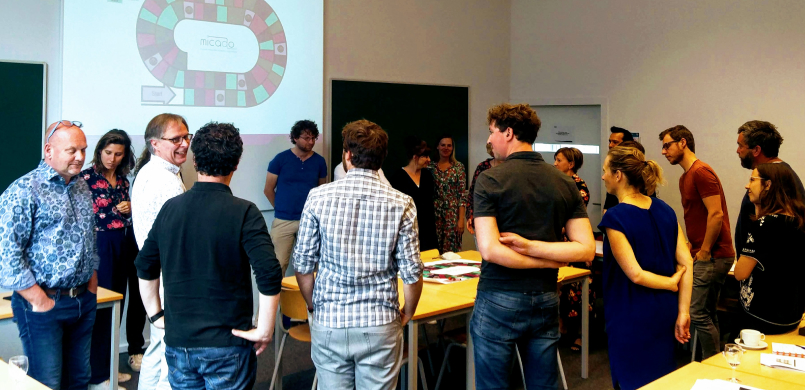
25 Feb Introducing the local experts and stakeholder committees
One basic principle of MICADO is the involvement of local stakeholders and experts to bring their experience and knowledge into the development of the MICADO applications. MICADO should offer a real added value and for this their involvement is absolutely mandatory. The stakeholders originate mainly from the future user groups of public authorities, migrants and civil society organisations.
The MICADO project delivers participatory formats that engage its target groups regularly. In particular, the project team established so-called Local Experts and Stakeholder Committees (LESCs) involving key stakeholders, policymakers, migrants and civil society organisations that meet in each local group and receive information about MICADO´s progress. Through the LESCs each pilot city can collect external expertise and facilitate outreach to the relevant target groups in order to improve the ICT solution. Stakeholders are confronted with very specific questions, thus stimulating an exchange of highly valuable expertise. A side-effect of these discussions is that trust is built up between the stakeholders. The LESCs have proven to be an extremely successful means of substantially involvement. Outreach and participatory evaluation of the project is provided by LESC members via discussions, e-mail or questionnaires.
In Antwerp, representatives of several local institutions and policy makers, organisations and agencies that are involved in the integration of newcomers are members of the local LESC, as well as experts with experience in the development of digital tools for the specific target group of newcomers. In total, the LESC has 40 members who expressed their interest in the MICADO project and are invited to the LESC-meetings. In the meetings the local project group can count on a presence of about 15-20 of those members, depending on individual agendas and topics to discuss.
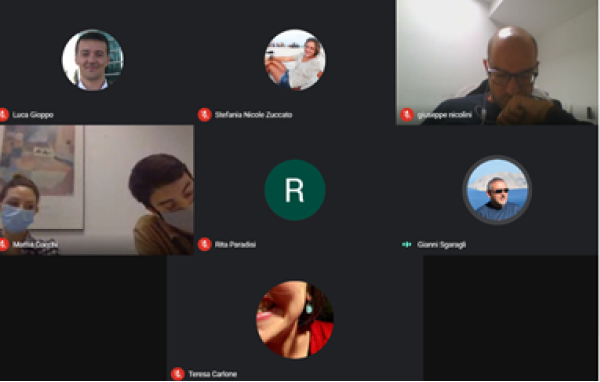
LESC meeting Bologna
In Bologna, firstly various third sector actors and the municipality were involved in the LESC discussions. With the progress of the project, the local project team has also established relations with the technical and digital area of the municipality of Bologna and therefore preparing the pilot phase.
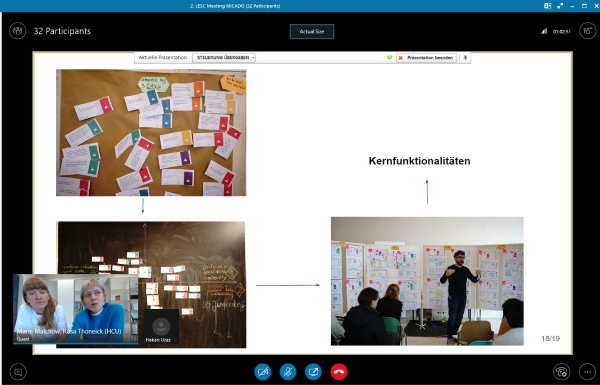
LESC meeting Hamburg
In Hamburg, a whole range of actors are represented, including representatives of the Social Ministry (as Hamburg is a city state, this is a state ministry) and representatives of the districts in which the integration of migrants and refugees is implemented locally. In addition, a variety of civil society actors are represented, including an association that is committed to the health care of refugees, the local public library with their various voluntary projects, or the Alliance of Refugee Initiatives. All these associations and initiatives help to facilitate the arrival of migrants and refugees in Hamburg and so the municipal measures for integration and the counseling and support services from the civil society level fit well into one another.
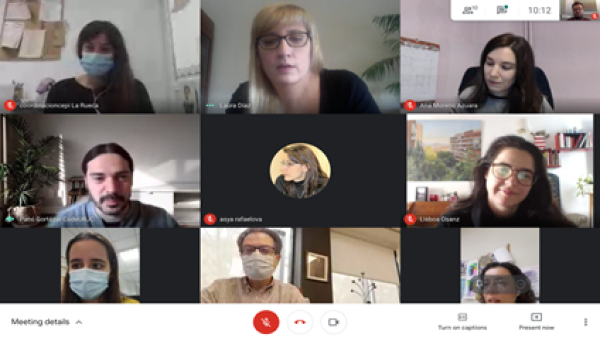
LESC meeting Madrid
In Madrid the following organisations are part of the local LESC: Representatives of the Centers for Participation in Integration of Immigrants (CEPIs), General Directorate of Social Services and Social Integration of the Community of Madrid, University Rey Juan Carlos, Professional Association of Sociologists and Political Scientists of the Community of Madrid, Ministry of Labor, Migration and Social Security, Spanish Red Cross and Comunidad San Egidio.
Topics that are discussed in the LESCs include:
-
-
- the description of the project in the initial phase and of the objectives in order to involve local actors and also to get to know each other, what expertise and useful tips they could provide
- local needs of the target groups (co-creation process)
- presentation of the general MICADO concept (Minimal Viable Product) developed by the project team with wireframes and mock-ups
- design of the MICADO applications
- indicators and data collection
- preliminary evaluation of the app (LESC-testing with a small amount of persons)
- content collection during the pilot phase
- technical evaluation on the possibility of integrating contents of apps and platforms already existing and used
-
The project team received very useful tipps form its LESC members which are continuously included in the next working steps. LESC members emphasized the importance for certain topics, e.g. (mental) healthcare services, and the advantages if the tool could facilitate the exchange of information and collaboration between different institutions and organisations. They gave useful hints regarding data privacy. But also regarding the gathering, entering and updating of data and information.
Due to the covid pandemic, the project team was forced to move the LESC meetings to the virtual space in the last year. And we notice that while the exchange continues to go well, it is significantly more time-consuming to deal with complex issues. But this is the experience of all projects at the moment, and we are doing our best to continue encouraging our target groups to provide feedback and keep the good contacts active.
In the following months, the LESCs will be involved in the piloting of the MICADO applications asking for their opinion on the format, the layout and the contents. Furthermore, the local uptake to include MICADO in the local structures will come into focus of the discussions.
If you are interested in becoming a member of your local LESC contact:
in Antwerp: valeria.lemaitre@stad.antwerpen.be
in Bologna: gabriele.manella@unibo.it
in Hamburg: micado@sk.hamburg.de
in Madrid: laura.diaz@colpolsoc.org
Key Words: Local Experts and Stakeholder Committee, LESC, Pilot, stakeholders
